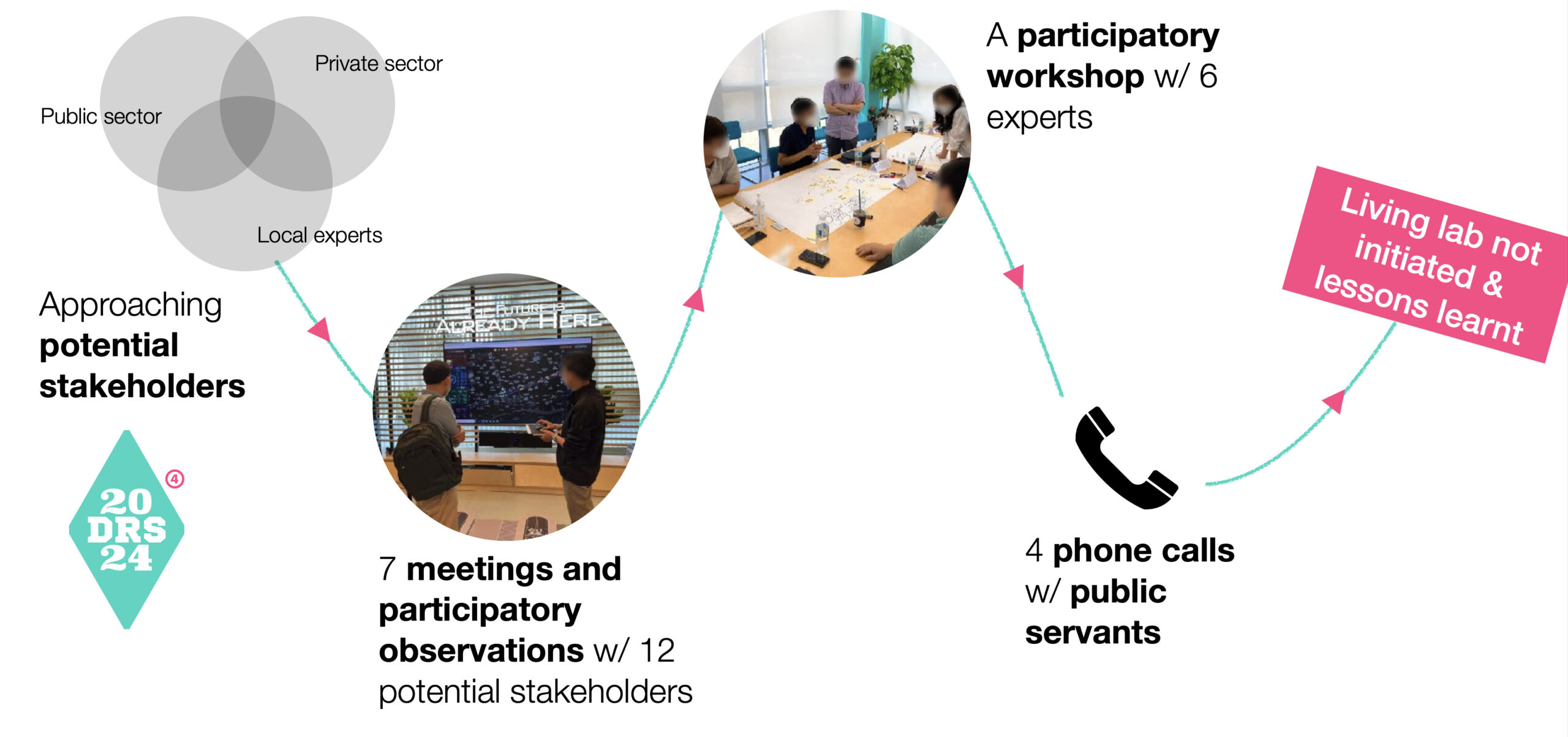
Why we failed: Exploring the context of establishing a living lab in Korea, DRS2024 Boston
Kim, S., and Park-Lee, S. (2024) Why we failed: Exploring the context of establishing a living lab in Korea, in Gray, C., Ciliotta Chehade, E., Hekkert, P., Forlano, L., Ciuccarelli, P., Lloyd, P. (eds.), DRS2024: Boston, 23–28 June, Boston, USA. https://doi.org/10.21606/drs.2024.760
Abstract
Living lab is widely adopted for renewing public services and policy. In establishing living labs, however, practitioners face the realities of the locale that influences the formation and operation of living labs. This paper reports on a single case-study, in which a group of design researchers attempted to set up a smart mobility living lab in Korea. By thematically analyzing meeting notes and a workshop, we uncover the challenges faced during preject phase. Our findings suggest that, while the uncertain and iterative nature of living lab is incompatible with the operational model of the public-sector in Korea, its name and participatory aspect are being enforced upon by ministries in distributing funds for grass-root actions and R&D projects albeit mostly on the surface level. The limited engagements predetermined by the funding schemes may impair learning and evolution – the key benefits of living labs as an open and participatory innovation process.